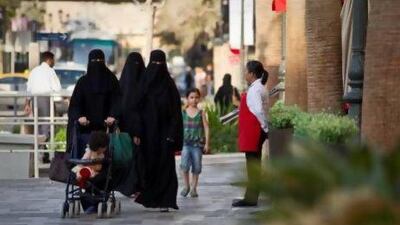ABU DHABI // The Mers virus is more likely to spread as travel increases between the UAE and Saudi Arabia, where most cases of the disease have been found, doctors have warned.
The Haj will take place in October and Saudi authorities have advised the sick and elderly not to make pilgrimages this year. Those who do travel have been advised to wear face masks.
More immediately, with unrest elsewhere in the Middle East disrupting holiday plans, increasing numbers of Saudi travellers are now heading for the UAE. That, too, increases the risk that the disease might spread, doctors say.
The problem is that experts do not know how the Middle East respiratory syndrome coronavirus (Mers-CoV) is spread.
"We have not confirmed how it is transmitted. We know that Mers-CoV is in the community and I would say everyone, especially medical establishments and emergency departments, needs to be vigilant," said NG Wai-Khuan, the infection prevention section head at Mafraq Hospital in Abu Dhabi.
The 82nd victim of the virus is in intensive care in an Abu Dhabi hospital after the condition was diagnosed at the weekend. The Emirati, 82, was already being treated for multiple myeloma, a cancer of the bone marrow. Patients with existing conditions are particularly susceptible to Mers.
Although Mers has a high mortality rate - of 65 people infected in Saudi Arabia, 38 have died - the spread of infection has been very low: about 20 cases a month.
Dr Keiji Fukuda, assistant director general for health security at the World Health Organisation, says there are three possible scenarios for the future development of the disease: it will die out, or stay at its current level, or the virus will mutate and infections will increase.
Dr Fukuda said this month he was not advising that the Haj be cancelled. Muslim-majority nations, he said, were aware of the threat of the virus and would be vigilant as pilgrims returned.
Nevertheless, Dr Mansour Al Zarouni, a consultant molecular microbiologist at SRL Diagnostics in Dubai Healthcare City, is concerned at the possible threat to the Haj from Mers. "When all these hundreds of thousands of people are coming, from North Africa to South-east Asia, for Haj, these people will be incubating the virus while in Saudi Arabia and taking it back to their home countries," he said.
"Until the Haj season, the issue is mostly a GCC issue but, after Haj, then there's very much a possibility it shall become more of a global issue."
He is also concerned by travel between Saudi Arabia and the UAE before then. "Due to the fact that many Saudis are going to be pouring into the GCC, mainly the UAE, during the summer … the assumption is that they will be bringing these viruses along and, due to the heat of summer, these people will mostly stay indoors, be it the shopping malls or hotels. The likelihood of infecting other people will be higher," he said.
The first case of Mers linked to the UAE was that of a 73-year-old Abu Dhabi man, who was treated at Mafraq Hospital before he was transferred to Germany. The Emirati, who had a history of cancer, died in a Munich hospital on March 26, 11 days after developing flu-like symptoms.
Ms Wai-Khuan, from Mafraq hospital, said these symptoms tend to be typical of the early stages of Mers-CoV. "We have to be very, very careful, especially the elderly and young children," she said. "In my opinion, anyone who has flu-like symptoms should see their GP immediately."
WHO is to convene an emergency committee meeting next week to discuss what urgent actions are needed to stem the growing outbreak of Mers-CoV.
ecleland@thenational.ae

